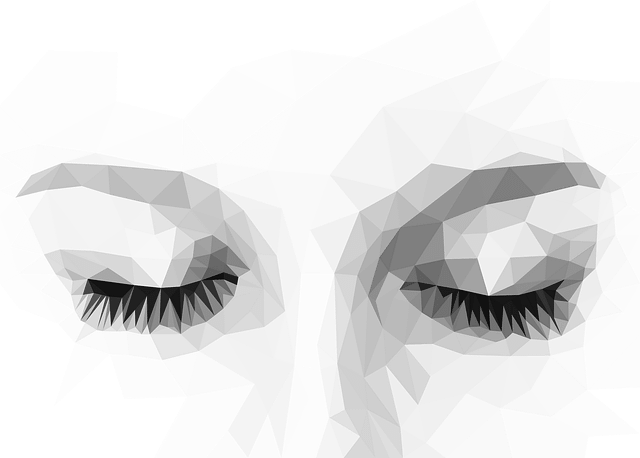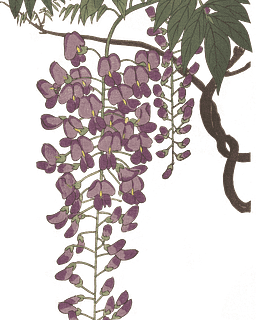
When I was young, I met a distant relative who couldn’t see. I only saw him a few times before I became an adult, by which time he had passed away, but more than thirty years ago we spent half a day together at a memorial service. He was an easygoing and gentle-mannered man who was happy to play a game with bored children. “I can’t see, but bring me whatever you can find, and I’ll guess what it is.” As if it were a competition, the children ran around the room, collecting everything they could get their hands on: teacups, pens, strips of paper, the toys they’d brought with them, whatever little objects they found in their mothers’ bags. Without a moment’s hesitation, he would guess — and guess correctly — and the children would shout with joy. It was fun, but for some time after that I couldn’t shake the thought of the man from my head. During our game, what was it he saw?
My mother told me he wasn’t born blind. I asked her if being unable to see meant living in a world without light and she nodded. Even though he can’t see now, there was a time when he could. In other words, he knows what light is — he has the memory of it. If I could have met him one more time, I had something I wanted to ask him. How different is the light he remembers in his mind from the light we see? Or how similar? In the end, I never had the chance to ask, but from that period on, before falling asleep at night, I got in the habit of closing my eyes in the dark and remembering the light of the day. I just had to know — how much and in what way could this remembered light brighten the darkness around me?
Years later I became a novelist, turning to the page to explore such questions. While the majority of my novel Breast and Eggs is fiction, I borrowed here and there from my own life and experience. Both the narrator and I were raised in poor homes in Osaka, for example, and we are both novelists.
All of the narrator’s feelings for the grandmother who raised her are also my own.
My grandmother died in the early summer of 2019. She was like a mother to me and protected me from all kinds of things. As a child, I was paralyzed by the thought of her dying. Just imagining being caught by that inevitable moment would always bring me to tears. My grandmother had the kindest soul; she was just about the only reason that I was able to live out my childhood.
For as long as I can remember, I had been afraid of my grandmother dying. Now she’s been gone for three years, and I’m still haunted by this unsteady feeling — as if I’ll never feel centered again. When I look at photos, I can’t help but cry. She died of old age. My grandmother’s life was full of hardships, but she lived to the age of ninety-seven without any serious illness. There’s no more peaceful way that she could have gone. The world is full of people who have endured the sudden and unexpected loss of a loved one, and who still manage to go on living. When I think about all the time I got to spend with my grandmother — right up to the end — I feel like I don’t have the right to be sad. Really, I have no idea why I’m still as sad as I am. It’s a strange way to put it, but it isn’t the adult in me — it’s the child who feared her grandma’s death with every fiber of her being. That child is still somewhere inside me, and it’s that part of me controlling my emotions, keeping me sad. That’s how it feels.
From an early age, my face and body looked so much like my grandmother’s that if I looked down when I was changing clothes, I’d find myself thinking of her body. When I made the decision to take her off the IV that was keeping her alive, we spent the night together, just the two of us, in her room at the hospital. As I watched the strength leaving her body little by little, I spent the hours touching her, rubbing her forehead, and her arms and thighs, which had changed color from being on an IV. While I touched her, I thanked her for everything — for the time we’d had together. She was warm, blood still coursing through her, but when I thought about how within only a few days the body of the woman now before me would be burned to ash — how she’d be gone — I had no idea how to feel. The last time I spoke with my grandmother while she was still conscious was two weeks before that. We were smiling, taking pictures. I said I’d be back soon, waving goodbye as I shut the door to her hospital room. That was our last moment together. The end doesn’t always show up wearing the face of the end. Sometimes you realize what it was only after everything is over. Of course I know that, but I still wonder if I could have created another “last moment” for us. If I’d visited her the next day, if I’d come by to see how she was doing. How many more times am I going to experience these “last moments” that I’ll recognize only when I look back?
As I spent the hours touching my grandmother’s body, speaking to her while she lay unconscious before me, I told myself that I would never let myself forget the skin I’m touching. I told myself I’d never forget the way I’m touching her, stroking her. I desperately wanted to remember every single thing I could see as best as I could. But at the same time, I wondered if I could ever remember this sensation — what I was feeling with my hands at that moment. What does it mean to remember a sensation? As I touched her, I gradually lost track. My grandmother’s body in the bath with me. She had blood blisters, and when I was a kid I always worried she’d bleed to death if they burst. When I begged her to cover them with band-aids, she just smiled at me and said don’t you worry. Really, what does it mean to remember the people who leave us behind — to remember the sensations that fade?
I realize I’m thinking about it again. The hours I spent touching my grandmother’s arms and legs — all night, all morning, all day. Her skin was warm. She was alive and I was definitely touching her. But now she’s gone and I’ll never be able to touch her skin again. I think about that. And I remember back when I was a child, how I would try to remember the light in the dark. I think about the light that my distant relative who lost his sight might have kept in his mind. Is remembering light like that different from seeing it? What about remembering the feeling of my grandmother’s skin that I would never touch again? Is it different from touching her with my own hands?
To be able to touch someone, to be unable to touch them again. Somebody being alive, somebody being dead and gone. To see someone in real life, to see them in a dream, or in a memory. The light that you see with your eyes, the light in your mind. What’s the real difference between them? Is it impossible to touch somebody you’ve lost? Is the light that’s lost really lost forever? What if there’s a world somewhere, a place where they’re really the same, and we simply can’t get there? I don’t know. But even if no such world exists, or if we’re incapable of reaching it, I think that’s why I write fiction — to create even one moment in which we can believe, with all our hearts, that these things truly are one and the same.


